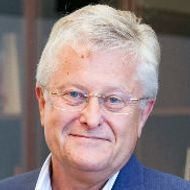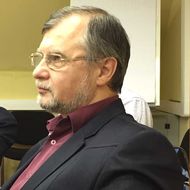- A
- A
- A
- ABC
- ABC
- ABC
- А
- А
- А
- А
- А
- HSE University
- Faculties
- Faculty of Social Sciences
- School of Political Science
- News
- ‘Symbols and Post-Communism: an Inherent Ambiguity?’: Lecture by Professor Graeme Gill
3 Krivokolenny Pereulok, Moscow, 103070.
Phones:
8 (495) 772-95-90 *22833,
8 (495) 772-95-90 *22448
Fax: 8 (495) 772-95-90 *12556
Email: politfac@hse.ru
Washington: Free Russia, 2018.
Petrov N., Hale H. E., Lipman M.
Russian Politics. 2019. Vol. 4. No. 2. P. 168-195.
Arbatli E.
In bk.: Oxford Research Encyclopedia of Politics (Living Edition). Oxford University Press. P. 1-20.
Sorokina A., Maximenkova M., Kasamara V.
Political Science. PS. Высшая школа экономики, 2019. No. 71.

‘Symbols and Post-Communism: an Inherent Ambiguity?’: Lecture by Professor Graeme Gill
The seminar ‘Symbolic politics and social constructions of past”, organized by the School of Political Science of the Higher School of Economics and the RC on political ideas and ideologies of the Russian Political Science Association was held on the 12th of May. Prof. Graeme Gill presented the paper ‘Symbols and Post-Communism: an inherent ambiguity?’
The transformation of communist regimes created an imperative for the development of a new system of symbols to legitimise the new status quo. A major problem with this is how to deal with the communist past. This paper argues that the way this is done is shaped not only by the circumstances of the transformation of the communist regime, but also by the way that regime came into existence in the first place.

Graeme Gill is Professor Emeritus of Department of Government and International Relations, University of Sydney, President of the International Council for Central and East European Studies (2010-2015). He is the author of the books ‘Symbols and Legitimacy in Soviet Politics’ (Cambidge Univ. Press, 2011), ‘Symbolism and Regime Change in Russia’ (Cambidge Univ. Press, 2013), ‘Building an Authoritarian Polity Russia in Post-Soviet Times’ (Cambidge Univ. Press, 2015) and many other works.
- About
- About
- Key Figures & Facts
- Sustainability at HSE University
- Faculties & Departments
- International Partnerships
- Faculty & Staff
- HSE Buildings
- HSE University for Persons with Disabilities
- Public Enquiries
- Studies
- Admissions
- Programme Catalogue
- Undergraduate
- Graduate
- Exchange Programmes
- Summer Schools
- Semester in Moscow
- Business Internship
- © HSE University 1993–2025 Contacts Copyright Privacy Policy Site Map
- Edit

